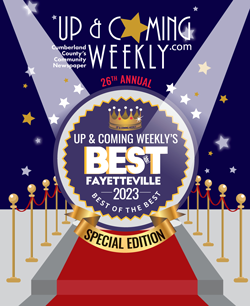It really is a big deal.
The federal Environmental Protection Agency Administrator, Michael Regan, and Brenda Mallory, Chair of the White House’s Council on Environmental Quality, made it their business to come to Fayetteville earlier this month to announce the “first-ever national, legally enforceable drinking water standard.”
The new enforceable standard comes in part because of the enormous outcry from southeastern North Carolina. That outcry comes largely from Fayetteville and south along the Cape Fear River, contaminated by DuPont and its successor company, Chemours.
They discharged PFASs, an acronym for an unpronounceable chemical cocktail, into the river for decades, contaminating the drinking water of thousands of North Carolinians with a product they called GenX.
Southeastern North Carolinians, however, are hardly the only people affected by PFASs, commonly called “forever chemicals,” because unlike other substances, they do not break down easily or quickly. They are associated with negative health effects such as low birth-weight babies, increased cancer risks, and high cholesterol levels. PFASs have been found beyond the Cape Fear River, including in Jones and Chatham Counties as well as in many other parts of the nation.
Regan is well-versed in the forever chemical issue, as his stepping stone job to the EPA was as North Carolina’s Secretary of Environmental Quality. In an interview with the Raleigh News and Observer, he stressed that dealing with PFASs is just getting started.
In addition to an enforceable drinking water standard, the EPA is looking at a national testing strategy to determine what levels are clean enough to protect human health, and ways to force polluters to pay for cleanup.
This is part of what our federal government is supposed to do—look out for our well-being. These are not just forever chemicals. They are forever ours.
*******************
At first blush, it sounds a bit wacky—the World Happiness Report, published since 2012 and including more than 140 nations. What does it mean if a country is “happy” and how can we tell? Does it matter if citizens are “happy” if their country is at peace and they have what they need?
Whatever national “happiness” means, we in the United States are apparently not so happy. Our country fell out of the top 20 happiest nations, now ranking 23rd. Our neighbor, Canada stayed in the top 20, but both North American first-world countries had dramatically lower happiness scores for younger people than for those 60 and over. That cannot bode well.
John Helliwell, a founding editor of the World Happiness Report, says their lack of happiness is “not a matter of education, income, or health."
It’s what they think about their lives so it’s a mood question. They’re hearing news that makes them unhappy and they may be sharing it…”
Let’s make today a “Cheer Up a Young Person Day.”
*******************
Baby Boomers, including this one, have seen a lot in our increasingly long lives. Remember the shocking and sometimes violent social upheavals of the 1960s? Remember Neil Armstrong’s walk on the moon and his unforgettable words, “one small step for man, one giant leap for mankind?”
Life before the Internet that put information—and disinformation—at our fingertips?
All of that notwithstanding, never in my wildest dreams did I ever imagine we would be watching a former United States President face trial on felony charges with more felony trials in courtroom queues.
Holy moly!
No wonder we dropped out of the happiness Top 20.

 How to resolve AdBlock issue?
How to resolve AdBlock issue? 









